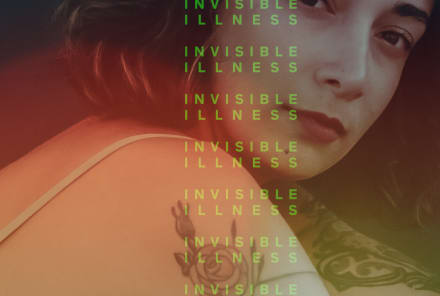Advertisement
Why You Shouldn't Wait For A Crisis To Go To Couples Therapy


Relationship advice columns, like /r/Relationships, are exceedingly popular on the internet. It's fun to read about other people's relationship problems, and in many cases, the solution is clear: Break up. Or, go to couples therapy.
In most cases, the problems in these advice columns are so major that those are really the only two options. But let's not get things mixed up: Couples therapy isn't just there for extreme life-altering issues, like a secret baby or a kleptomaniac mother-in-law. Therapy can also help with more everyday issues, like boundaries, sex, or communication.
In fact, couples therapy is much more effective when couples go early rather than waiting for a major life event, according to couples therapists Sheila Addison, Ph.D., and Erica Basso.
Don't wait for the worst.
"Smart, proactive couples come to therapy before real crises happen," Basso tells mbg.
That's the opposite of what usually happens. Research by John Gottman, founder of the Gottman Method of couples therapy, shows that couples wait an average of six years before they seek help from a therapist. That likely contributes to why, according to Addison, couples therapy has one of the lowest satisfaction rates of all forms of therapy.
"A lot of times people wait until things are so bad that one or both people have kind of exited the relationship mentally," Addison tells mbg.
"Couples may begin therapy saying they are presenting to work on their relationship, but if one partner is one step out the door and is not transparent about that, it may be really difficult for that person to change their mind," Basso adds.
Also, by the time many couples go to therapy, the foundations of the relationship have already eroded. That's not to say that couples therapy is ineffective for late-stage relationship crises. But waiting too long does make things a lot harder to fix.
"I can accomplish more in a shorter amount of time with couples that come in early," Addison says. "Whereas, when there's a lot of hurt and water under the bridge, sometimes we need a lot more time, and we need to go a lot slower to help people turn things around, and it certainly can be harder. … I certainly have the experience of folks coming in and just quietly sitting there and thinking, I wish you'd come in a year ago."
When to go to couples therapy.
So, when should couples go to therapy? Addison says that if you're facing the same issues over and over again, or if you're struggling with how to talk about those issues with your partner, therapy can absolutely help.
"I really appreciate it when couples come in and say, our relationship is strong in these kinds of areas, but we have a chronic problem that we can't seem to resolve with the skills that we already have," she explains. "That can be anything—we do a lot of things well, but we don't do so well at talking about sex. Or, we get really stressed out when we're talking about money. Or, we get along really well 80% of the time, but if one of us gets our feelings hurt, we get into these really bad fights that nobody can figure out how to get out of."
How soon is too soon for couples therapy?
Some people may be reluctant to go to couples therapy because they believe that it's "too soon." If you already need couples therapy after a year in a relationship, you might as well just break up instead, right?
But that's a myth, Addison says. There's really no such thing as too soon when it comes to couples therapy. A better way to think about it, she says, is that there's a relationship milestone when both partners feel fully invested in the relationship and would rather work it out with each other than hedge their bets elsewhere. Once you've crossed that milestone, couples therapy is a great tool to add to your toolbox.
"If your feeling is 'I'd really like this to work out; I'd rather have it work out than go looking for someone else,' then make use of the option to go to therapy if you can access that," Addison explains. "Some of my happiest couples are ones that got a tuneup or got some skill-building early on before things got really bad."
The real purpose of getting counseling as a couple.
There are many understandable reasons that couples hesitate to go to therapy together. It can be difficult to open up about your most intimate problems to a stranger. For members of marginalized communities, like queer people and people of color, it can be tough to even find a couples therapist that you feel comfortable speaking to. Couples therapy is also associated with a lot of stigma and shame.
"People may think going to therapy means their relationship is failing, but I want to argue against that," Basso says. "A willingness to attend couples therapy is a commitment to enhancing your relationship so it is ever more fulfilling and satisfying."
It's 100 percent normal to experience conflict in any relationship, and it's also normal to need a little assistance in figuring out how to healthily approach those conflicts. Therapists have seen it all, and they're not there to judge you.
A couples therapist can work with you on a regular basis to help you practice the specific relationship skills that you need. This usually takes anywhere from a few months to a year. Even after that, you may find yourselves calling your therapist again down the line, and that's totally OK.
"[Successful couples] may come back for 'booster' sessions once a month, or every couple of months," Basso says.
If you do decide to explore couples therapy as an option, make sure to research your potential therapist first. A skillful, trained couples therapist should be there to rehabilitate the relationship itself, not the individuals in it. Addison urges couples to look for therapists who are specifically trained in couples therapy, like those with a marriage and family therapy license (sometimes denotes with an "LMFT" after their name).
"Couples therapists are not traffic cops. We're not judges, we're not mediators, we're not there to declare who's right or wrong about something," Addison says. "I think when people recognize that the therapist is really there to support the relationship rather than take sides, that's the best kind of couples therapy."
Watch Next
Enjoy some of our favorite clips from classes
Enjoy some of our favorite clips from classes
What Is Meditation?
Mindfulness/Spirituality | Light Watkins
Box Breathing
Mindfulness/Spirituality | Gwen Dittmar
What Breathwork Can Address
Mindfulness/Spirituality | Gwen Dittmar
The 8 Limbs of Yoga - What is Asana?
Yoga | Caley Alyssa
Two Standing Postures to Open Up Tight Hips
Yoga | Caley Alyssa
How Plants Can Optimize Athletic Performance
Nutrition | Rich Roll
What to Eat Before a Workout
Nutrition | Rich Roll
How Ayurveda Helps Us Navigate Modern Life
Nutrition | Sahara Rose
Messages About Love & Relationships
Love & Relationships | Esther Perel
Love Languages
Love & Relationships | Esther Perel











